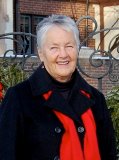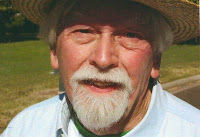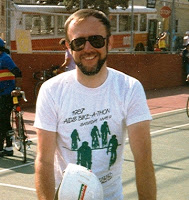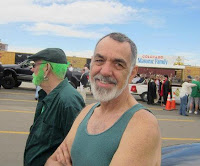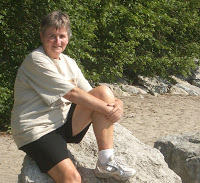There are those who work in Washington, D.C. who call themselves patriots simply because they religiously wear an American Flag lapel pin. They claim to be working toward a better U.S.A. I honestly believe there are many politicians, leaders of our nation, who do not comprehend the difference between what is good for the nation as a whole and what is good for their funders, their interests, and their own self aggrandizement.
For example I have to challenge those who believe that it is better for our society as a whole to build an empire and to increase our influence in the world. To cite a current issue I have to challenge those who believe that we should be a continuing presence in Afghanistan for an indefinite period of time. President Obama would like to end the longest war in our history and bring the troops home. In a rare public appearance recently, George W. Bush was asked the question “Why should we keep troops in Afghanistan indefinitely?” His answer was “So that we can ensure that young Afghan girls receive an education.” I do believe that young Afghan girls should have the opportunity for an education; but not at the expense of educating our own young girls and boys.
While we debate whether or not we should be a presence in Afghanistan, the United States continues to fall behind in quality of education. Especially in math and science we are constantly reminded of how far down the list of countries ours is in performance in these subjects in our schools.
Case in point: I just heard this on the radio, Exxon Mobile is always searching for young engineers. Presently they are not hiring American graduates. They are looking in other countries particularly Russia. Hiring Russians? No wonder we have high unemployment. Our graduates apparently are not qualified for many jobs because of our failing educational system. Falling behind in education of our youngsters is a huge threat to the future of the U.S. in my opinion.
And catching up takes decades if not generations.
While we’re on the subject of falling behind consider the status of women in our country today. According to a recent study the United States ranks 23rd in the number of women in positions of leadership and authority in politics and business. Twenty third behind the Phillipines and Nicaragua. Much work needs to be done here at home before we address the ills of other countries. It is my point of view that leaders who are patriots recognize this and work to develop and implement policies to address the issues that directly relate to the well being of the whole nation.
This past Friday being the fiftieth anniversary of the assassination of President John F. Kennedy, we have been reminded of his legacy and who he was as a man. My point of view is that John Kennedy was a true patriot. I believe that he tried to do what was best for the country, not what was best only for himself, his party, or his friends and associates. It happens that he lost his life because of what he believed was best for the country and because he was effective in implementing policies which were beneficial to all the people. He was the People’s President. He exemplified the all so familiar words “ask not what your country can do for you. Ask what you can do for your country.”
In spite of the momentum of the civil rights movement at the time of his presidency, Kennedy took a heroic risk of his political career when he fought for equal rights. He fought the corporate culture and the military establishment. He was considered a socialist by some, certainly an over-regulator at best.
Kennedy was dedicated to bringing lasting peace to his country in spite of the pressure from the military industrial complex and the horrible war in Viet Nam. He was terrified of the threat of nuclear war and was known as the peace president. This in itself takes great courage. The political establishment usually does not embrace the idea of lasting peace. Peace is not profitable.
Had Kennedy survived and had a longer tenure as the leader of the free world, our country, perhaps the whole world, might look a lot different today. Now fifty years after he was shot there is doubt around his assassination and who did it. There is speculation that the murder was a conspiracy of the CIA or the FBI or, certain people in the pentagon, and certain business interests. I do not have a point of view about that. I suppose we, the public, may never know the truth. Perhaps the truth is as it stands as the accepted truth.
So what makes a patriot, anyway? I do not wish to imply that a public servant or any citizen must give his or her life to be considered a patriot. Certainly those who go off to war and pay the ultimate price, or simply risk life and limb–they have to be considered patriots. Maybe they go off to war because they have no choice; it is required of them. Does that mean that they or those who elect not to go to war because they choose not to kill–does that mean they are not patriots? No.
Had John Kennedy not been assassinated would he still be considered a great patriot? Certainly not by those who did and do not share his point of view about what is best for the country. But the reality is that he gave his life while serving his country and in the line of duty. This alone does not make him a patriot. His policies that were implemented were designed to benefit the entire country not just one faction or another.
He WAS a patriot insofar as he sacrificed personal benefit and personal gain for the sake of the entire nation.
That’s my point of view.
11/25/13
About the Author
Betsy has been active in the GLBT community including PFLAG, the Denver women’s chorus, OLOC (Old Lesbians Organizing for Change). She has been retired from the Human Services field for about 15 years. Since her retirement, her major activities include tennis, camping, traveling, teaching skiing as a volunteer instructor with National Sports Center for the Disabled, and learning. Betsy came out as a lesbian after 25 years of marriage. She has a close relationship with her three children and enjoys spending time with her four grandchildren. Betsy says her greatest and most meaningful enjoyment comes from sharing her life with her partner of 25 years, Gillian Edwards.
